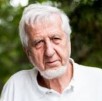Géza Jeszenszky
GÉZA JESZENSZKY (Budapest, 1941). Historian, D.Phil. (Eötvös Loránd University, Budapest). Was schoolteacher and librarian; from 1976 to 2011 taught modern history at what is today Corvinus University of Budapest. Was Fulbright Visiting Professor at the University of California in Santa Barbara in 1984–1986. Also taught at the University of Michigan, Ann Arbor; Pacific Lutheran University at Tacoma, WA; College of Europe, Warsaw, Poland; Babes-Bolyai University at Kolozsvár (Cluj-Napoca, Romania). He was Foreign Minister of Hungary in the first non-Communist government (1990–1994), Ambassador to the United States of America in 1998–2002, and to Norway and Iceland in 2011–2014. He is the author of a large number of scholarly publications and political writings, including Lost Prestige. The Changing Image of Hungary in Britain, 1894–1918 (Budapest, 1986, 1994, 2020 in Hungarian, coming out in English in 2020); Post-Communist Europe and Its National/Ethnic Problems (Budapest, 2005, 2009), July 1944. Deportation of the Jews of Budapest Foiled. (Ed.) (Reno, NV: Helena History Press LLC, 2018.) His book on Hungary’s relations to its neighbours in the years of the regime change (Kísérlet a trianoni trauma orvoslására. Magyarország szomszédsági politikája a rendszerváltozás éveiben) came out in 2016. He is co-author of a book on the history of skiing in the Carpathian Basin (2016). He is an editorial adviser for Hungarian Review.

